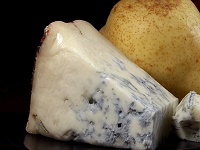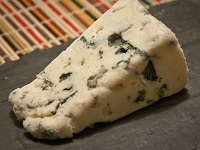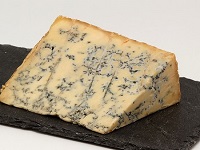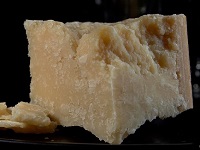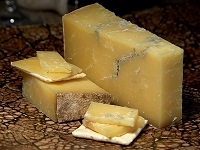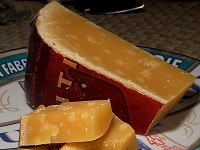Boal (Portugal)
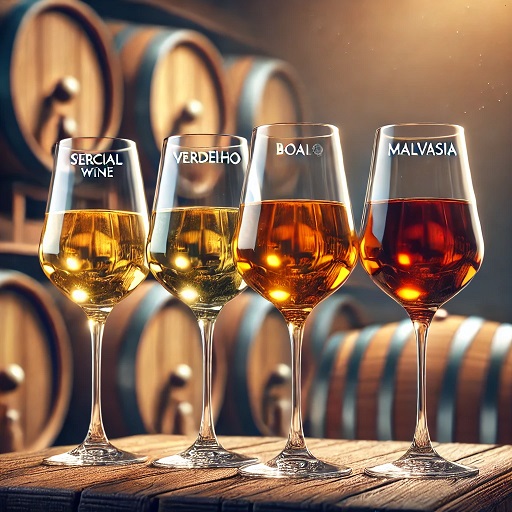
Boal (also called Bual) is a fortified Madeira Wine from the Madeira Island of Portugal.
Boal Flavors
Typical Boal flavors are sweet caramel, honey and dried figs.
Caramel |
Honey |
Nuts |
Figs |
Boal Profile
Boal is sweet and complex with good acidity.
| SUGAR: | Sweet (45-63 g/l) |
| BODY: | Full |
| ACIDITY: | Medium - High |
| ALCOHOL | 20% ABV |
| Serving temperature: 16°C (61°F) | |
Madeira Styles
The 4 styles of Madeira wines are named after the grapes used to produce the wine. Ranging from the driest to the sweetest, the Madeira types are:
| Grape | Sugar |
|---|---|
| Sercial (Dry) | 09-27 g/l |
| Verdelho (Medium dry) | 27-45 g/l |
| Boal (Medium sweet) | 45-63 g/l |
| Malvazia (Sweet) | 63-117 g/l |
Food Pairing Boal
Digestive |
Pudding |
Panacotta |
Mousse |
Figs |
Crème Brûlée |
Pastry |
CheryPastry |
Dried Fruit |
Walnuts |
Roasted Almonds |
Hard Cheese |
Excellent Pairings
Rich Puddings. Bread Pudding. Chocolate Pudding.
Fruit Tarts. Crème Brûlée.
Candied Nuts. Roasted Almonds.
Hard Cheese. Walnuts. Figs. Dates. Dried Fruit.
Duck with Orange Glaze. Pâté. Foie Gras.
Boal is also deliciuos on its own and with a cigar.
The Ideal Glass for Boal
A Small Tulip Shaped glass consentrates the flavors (nutty, chocolatey, fruity) near the rim for enhanced aroma enjoyment.
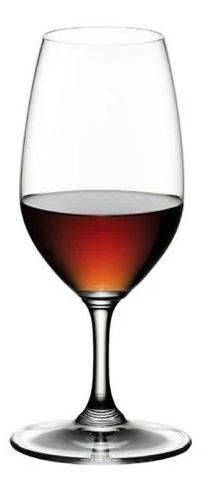
|
The narrow opening helps to capture rich and deep aromas, making each sip more flavorful. Boal is usually served slightly chilled. A stemmed glass maintains the optimal temperature by preventing your hand from warming the wine. |
Madeira Wine Origins
The volcanic island of Madeira was discovered by the Portuguese in 1419, and soon became a strategic port for sailing ships picking up fresh water and supplies on their route to India, East India, or the Americas.
Local farmers saw the opportunity and startet to plant more vines.
The barrels were loaded onboard the visiting ships to provide refreshments to the sailors, and to act as ballast.
In this age of exploration, one of the biggest challenges was to prevent the wine from spoiling.
The solution: fortify the wine with brandy (neutral- non oaked- grape spirit), raising its alcohol content to 17-22% and making it stable. Same process used in Sherry and Porto wines.
The Legend of Madeira
Madeira wine was born by accident.
On a round trip to the East Indies, the refused barrels were returned to the producer who found out that the wine had improved.
The ship had passed 4 times the equator and the wine was exposed to tropical heat, intense movement and oxidation.
How Madeira is made Today
Estufagem is a heating process that transforms normal wine into fortified wine through rapid aging.
The wine is heated to high temperatures and exposed to air to oxidize.
Madeira and American History
Many American presidents including George Washington, Benjamin Franklin and Thomas Jefferson were fond of this sweet wine that soon became "America`s drink".
The signing of the Declaration of Indipendence by the Founding Fathers was toasted with Madeira wine.
The Madeira Island
Madeira is a Portuguese Island west of Africa.
In Portuguese, Madeira means "wood" for the sub-tropical forests that once covered the islands. In fact Madeira is an archipelago composed of 4 islands, 590 km off the coast of Morocco. Only 2 are inhabited: Madeira and Porto Santo.
The total surface is 741 km2 of which the vineyards occupy 490 hectares.
The climate is sub-tropical and temperate but the steep mountains (highest Pico Ruivo 1862mt) form different micro-climates.
Listed Wines:
Madeira is a fortified wine made on the Madeira Island.
